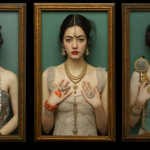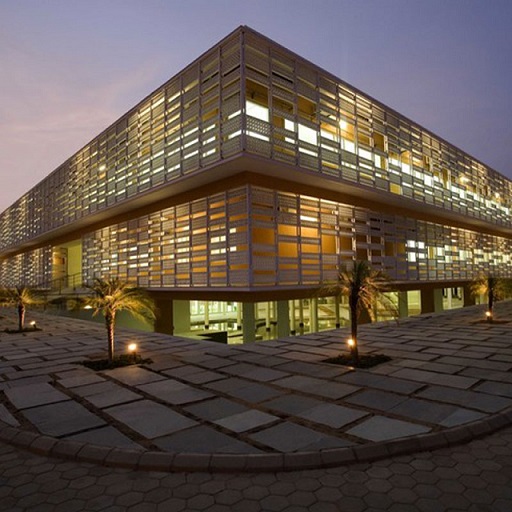What to develop for success
As the world around us resurges, we see an increasing convergence of digital technologies and the creative economy. The creative economy industries, including design, fashion, media, and innovative businesses, see significant disruptions in their work and job landscapes. The pandemic has accelerated disruption overall, and the need for creativity and creative skills is evident now more than ever.
I have worked for the last 25 years with young creatives in a design college, collaborated and consulted with the creative industries and have watched closely the importance of creativity explode.
Today employers from all domains make their way to creative colleges to hire people who can bring innovation and design thinking into their organisations. Multiple pieces of researchToday it is one of the key strategies on which people develop their business and startups.
Deep Focus on User Experiences
The user and his experience are now of utmost importance. People are giving experiences increased priority while making choices. Designed Human interactions with other humans or with products are yielding maximum benefit. Interactions today are digital, virtual and physical experiences, often a hybrid combination of the material and virtual world.
Sustainability and Local Products
Consumers are beginning to appreciate the importance of ethical, environmental living, craftsmanship, social causes, self-reliance and need-based living. The demand for Sustainability today is led by the consumer, not governments or regulations, and will increase the impact on materials used, supply chain choices, and production systems. The demand for a circular economy will become commonplace. Even in terms of content, we see that regional content, entertainment and influencers are gaining increased viewership and importance.
A look at these trends indicates that one profession, one kind of skill set, is not enough to be successful in any. And each trend has to be addressed with creativity or innovation. Whether it is health, fashion, media or manufacturing, these trends need to be looked at comprehensively and with a much more expansive and innovative approach. Additionally important to note are the world’s problems today — the pandemic, racism, inequality etc. These too cannot be solved by one discipline, one profession and in a traditional assembly-line approach.
The World Economic Forum in its 2020 Summit has identified critical thinking and problem-solving as the top skills for the future, along with active learning, innovation and creativity. Resilience, flexibility and learning skills are emerging trends.
Each of us needs to take a good look at where we are and what we need to improve to be ready for the future. Consciously work the following skills into your lives and those of your teams, students and families. Building a culture of creativity and innovation in your office is an excellent way to start.
Creativity and Creative Skills
Creativity and Creative skills are well poised to be at the centre of this change. Creativity is the ability to think about a task or a problem in a new or different way or use the imagination to generate new ideas. Creativity enables you to think critically, solve complex problems or find exciting ways to approach tasks. If you are creative, you look at things from a unique perspective, are willing and able to learn as you go and are resilient and flexible.
Below are vital creative skills essential for the future economy. They are not the regular skills you would expect to be listed. They are based on real findings of what an employer looks for and what will become more prominent in a VUCA world. These skills, strong in creative professionals, are critical in the design and creative process across all industries.
a. Open-mindedness and a Positive Attitude
Openness to new ideas, change, and the ability to see a better world is a critical skill in today’s world. What has brought us here is not going to take us into the future. One has to actively search for evidence against ones favoured beliefs and continuously look for new ways of doing things and achieving a positive outcome. In a fast-changing world, an outward-looking approach and an eye on shifts in the environment enhance agility and allow one to identify and grab growth opportunities.
b. Discipline and Determination
Against common beliefs, creativity is not random and impulsive, but the creative process is, in fact, just the opposite. Sound planning and consistency are the hallmarks of a successful creative professional. To deal with this VUCA world, one must develop discipline and grit, never give up attitude, look at all situations with a problem-solving approach and have the determination to fight till the end.
c. Playfulness and Risk-taking
Playfulness is, in part, an openness to being a fool, which is a combination of not worrying about competence, not being self-important, not taking norms as sacred and finding ambiguity and double edges a source of wisdom and delight. The ability to see things differently, try different things, experiment, think outside the box, have fun, make mistakes, and enjoy dabbling with ideas and materials. Playfulness allows you to break the norms, create new ones, live with wonder and curiosity and take risks to leapfrog achievements.
d. Collaboration and Multi-disciplinarity
When people or organisations from different disciplines come together and contribute their expertise towards common objectives, the outcome is always superior. It helps problem-solving, increases group competence, kickstarts organisational learning, and builds a stronger team or organisation. As a start-up, the best way to increase your strength is to collaborate with partners to achieve your goal. Collaboration could be synchronous or asynchronous, depending on the situation.
e. Data and Tech-friendly
Various studies demonstrate that creative individuals can use both the right and left sides of their brains. Creative people have been able to immerse themselves in technology and create interactions that have blown our minds. Everywhere from sensors to digital videos, social media, AI, creating media, we have seen creative professionals and data analysts work together to visualise and develop solutions. One has to develop the skill to analyse, work with numbers and deep technology with a purpose.
f. Underdetermination, Curiosity and Questioning
Gone are the days of the super confident hero personality. What one needs to be successful in the future is a learning attitude, a feeling of underdetermination, that there is something that you can learn from others. . A creative person is always curious and questioning. Asking the right questions is a critical skill. Always asking, learning from the situation, wanting to learn from others, and looking at the why and the why not helps thinking, creativity and continuous learning.
g. Storytelling
Persuasion is the centre piece of business activity. Stories not only persuade but also inspire and create emotional and personal experiences that have a lasting impact. A story expresses how and why life changes and is much more potent than excel sheets and PowerPoint presentations. In a crowded world with many options available to the consumer, an authentic and compassionate story will go a long way. Storytelling is another creative skill that people and leaders should develop to engage their audience, customers, teams and investors.
h. Consciousness
Being aware of one’s position in this world, understanding the balance between environment, people, crafts, and livelihood and using this awareness to create sustainable products, content, and systems are the way ahead. Today, young people take the lead and create a more need-based living structure where experiences are valued more than ownership. Therefore, it is essential to be aware of the environment and people impact that your work and lifestyle have.
i. Ideation and Speculation
Ideation is the base of new ideas and solutions using various tools like brainstorming, prototyping, mind-mapping etc. While ideating, one goes wide in terms of concepts and outcomes, leading to narrowing or filtering based on the project’s requirements, providing both the fuel and the source material for building prototypes and getting innovative solutions. We have to learn to develop new ideas and approaches for today and use them to speculate solutions for the future. Speculative design is a design method that looks at today’s societal problems and looks ahead, projecting scenarios. Speculation allows for the creation of solutions to the issues that lie in the future today.
Yes, creativity is the way of the future. Even though it comes more easily to people who have had a creative education, we can all, in our workplaces, create an environment where creativity can flourish. Higher education institutes should consciously set up situations in the curriculum and outside to ideate, collaborate, take risks, play, tell stories, be agile and work across disciplines. Startups, entrepreneurs and leaders should create an environment where teams are empowered to encourage debate, question, understand new technology, think differently, and foster creativity.
Conscious Creativity allows people to stretch their imaginations and develop new and boundary-pushing frameworks at their workplaces and in their own lives. Companies would do well to create time and structures to build these skills and a culture of creativity and innovation. At the same time, each of us should develop an awareness of where we lie on these skills and create benchmarks and a plan to achieve where we want to be.
Published on Medium dated 9th March.
Photo by Joshua Woroniecki on Unsplash












